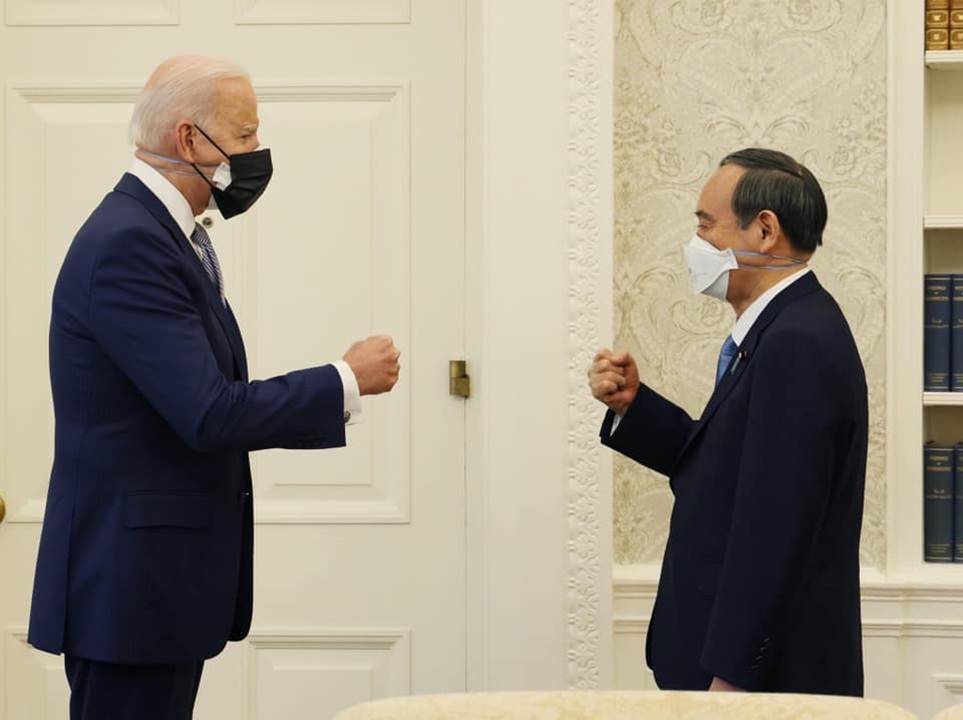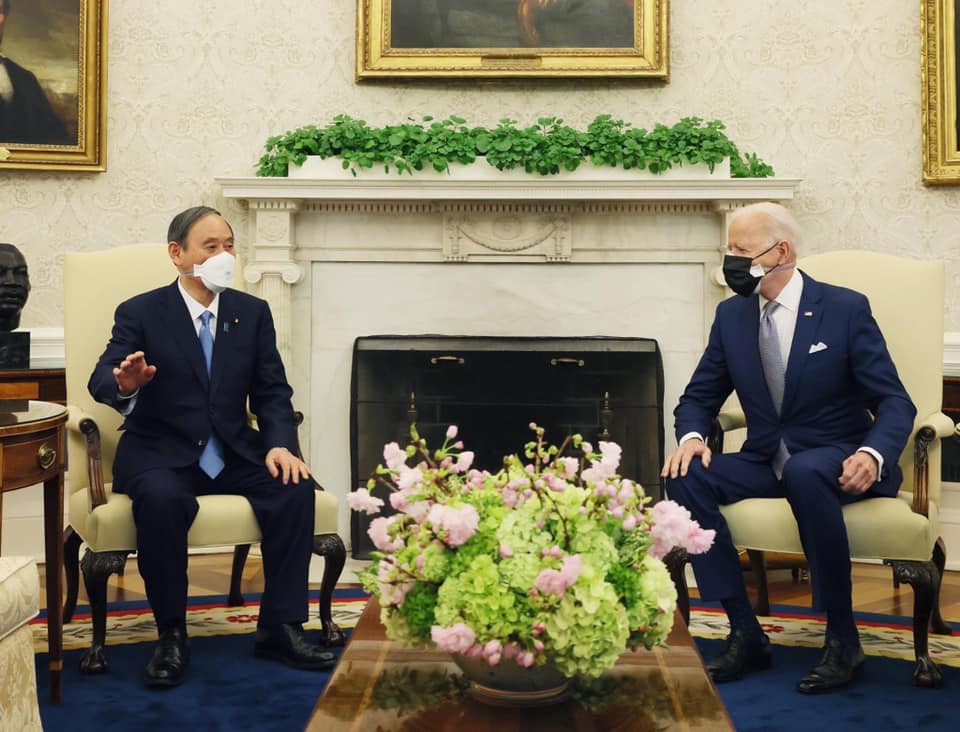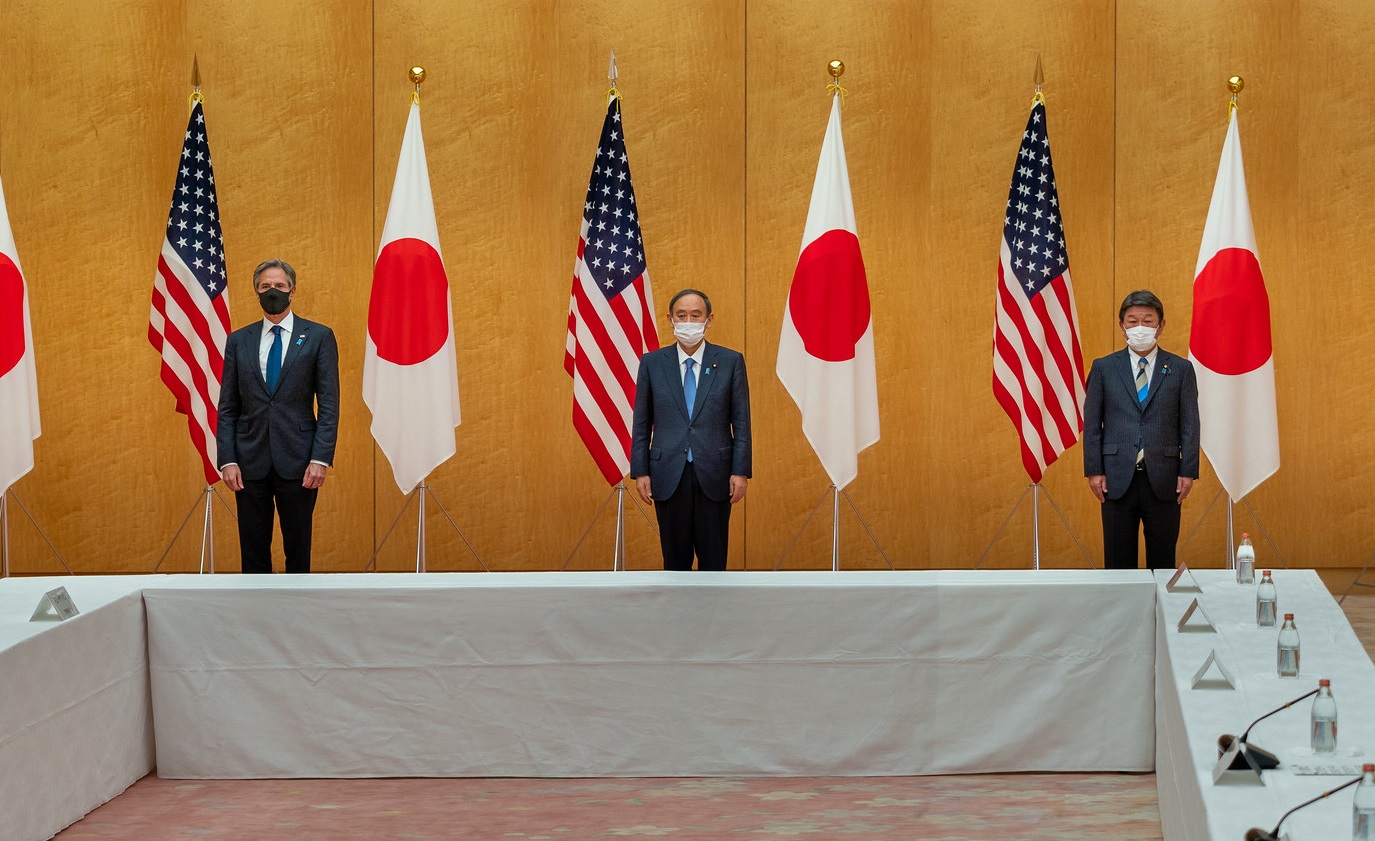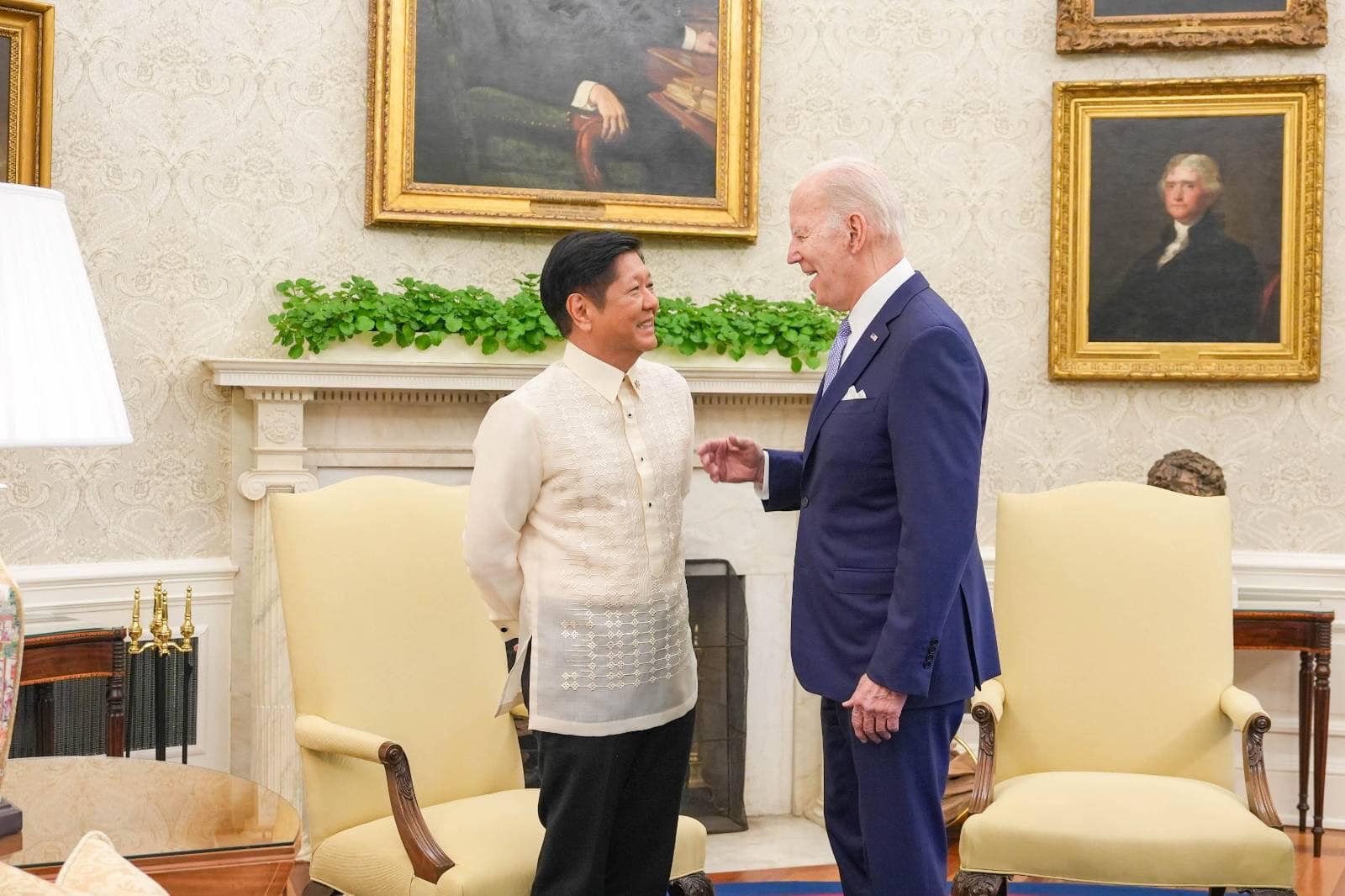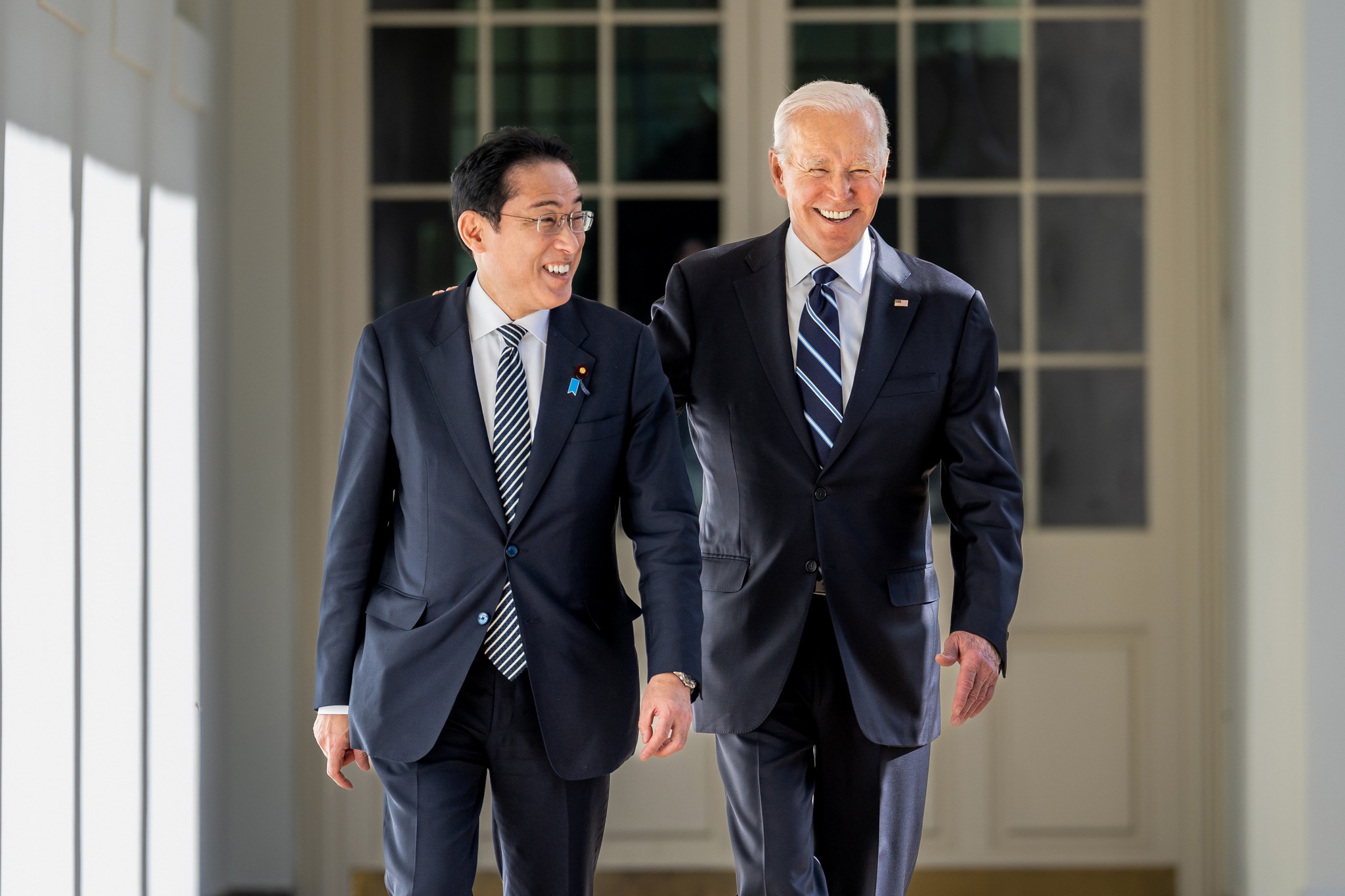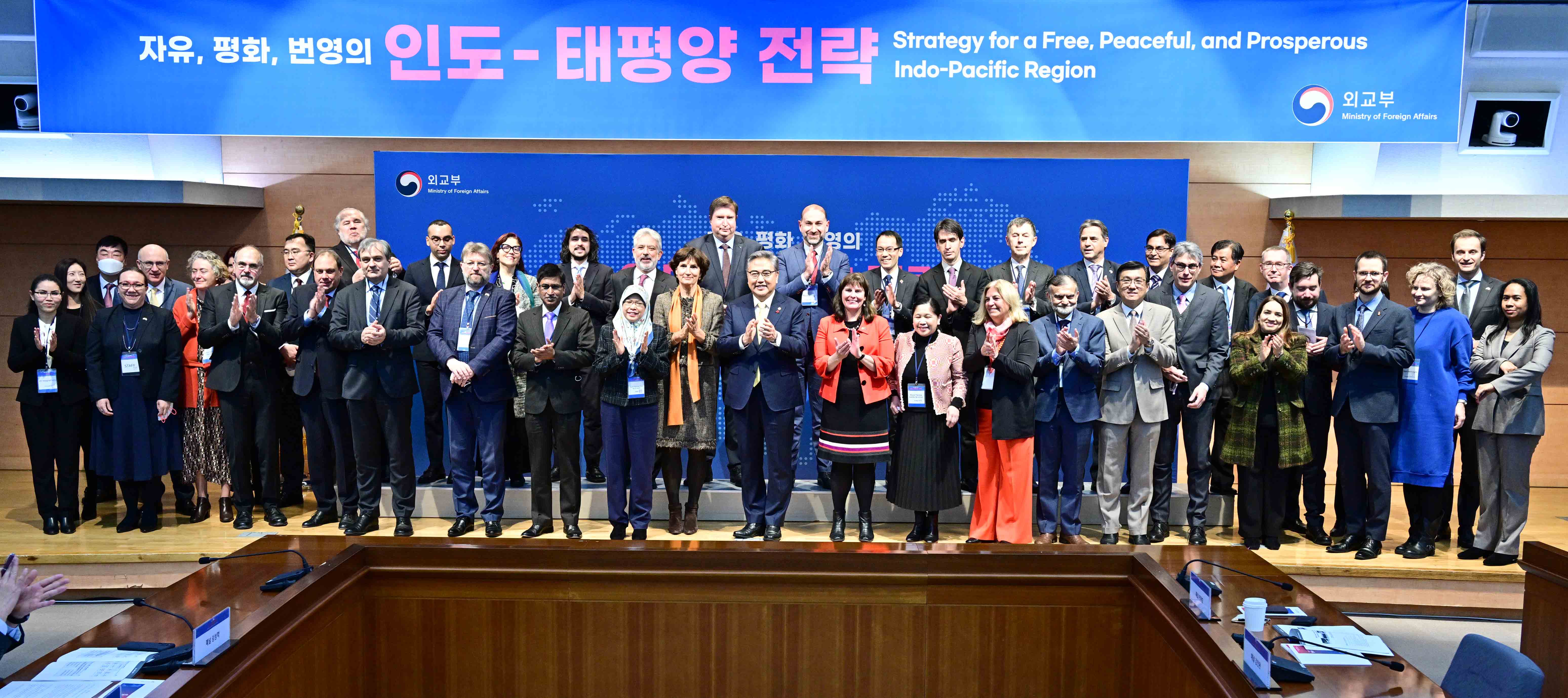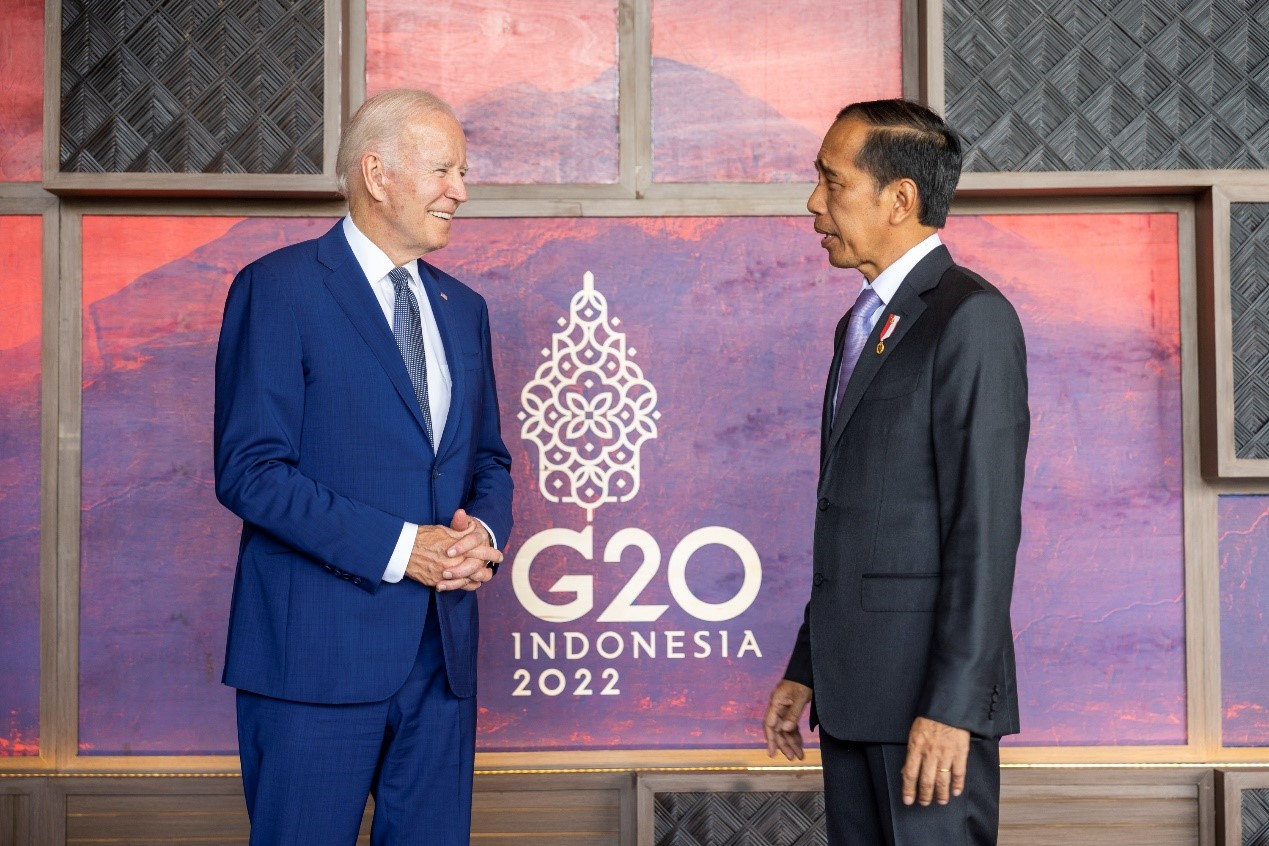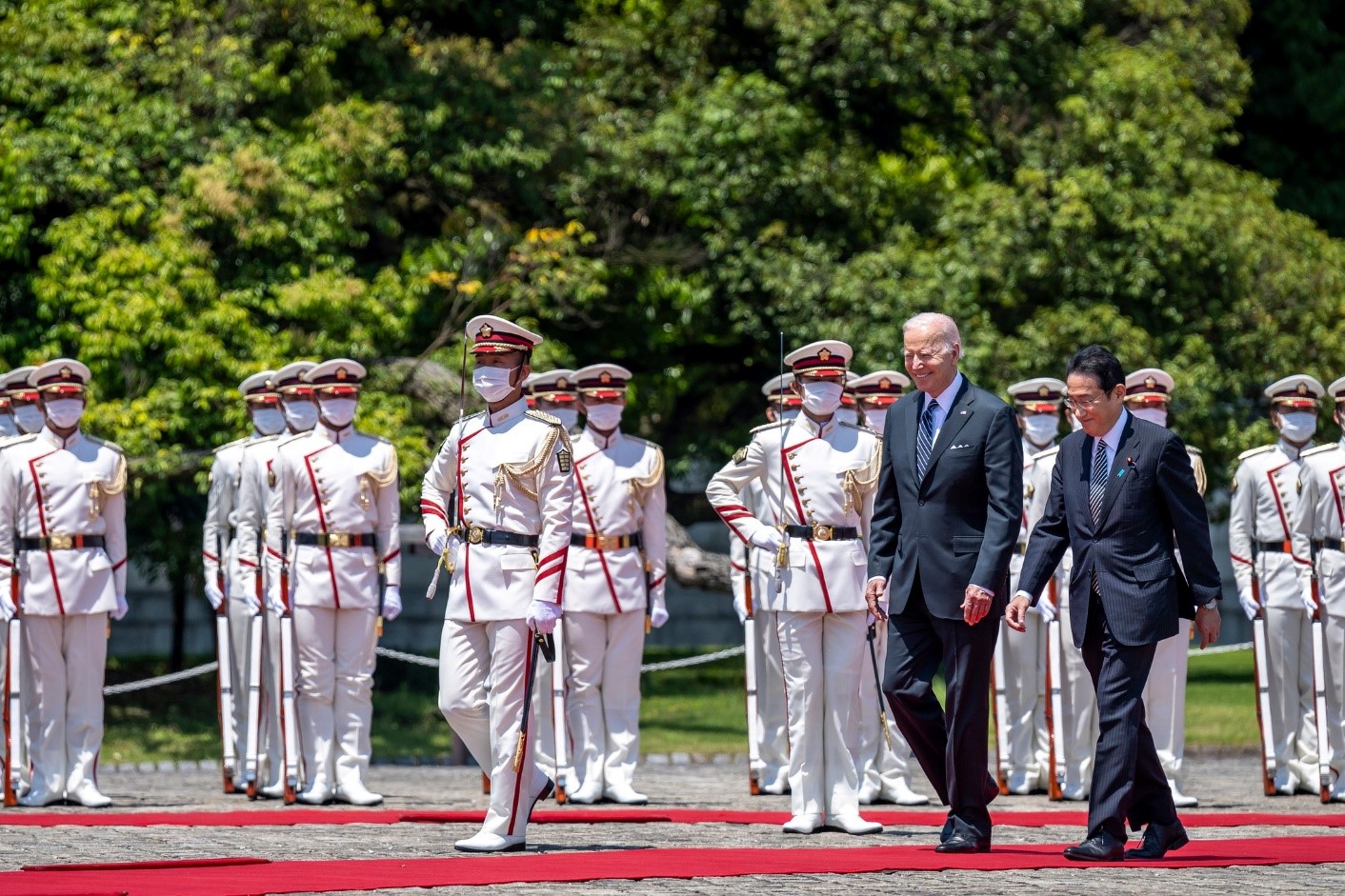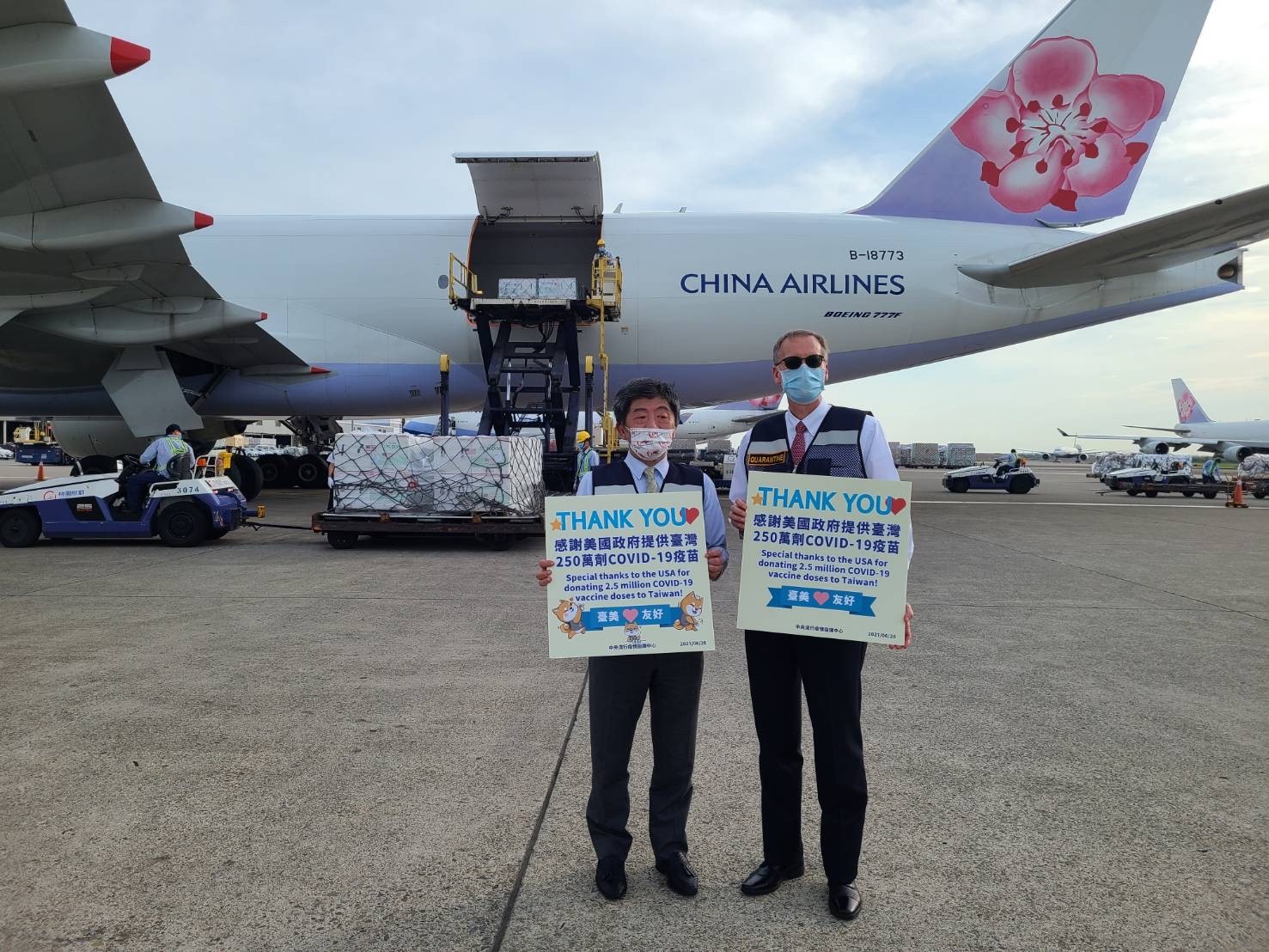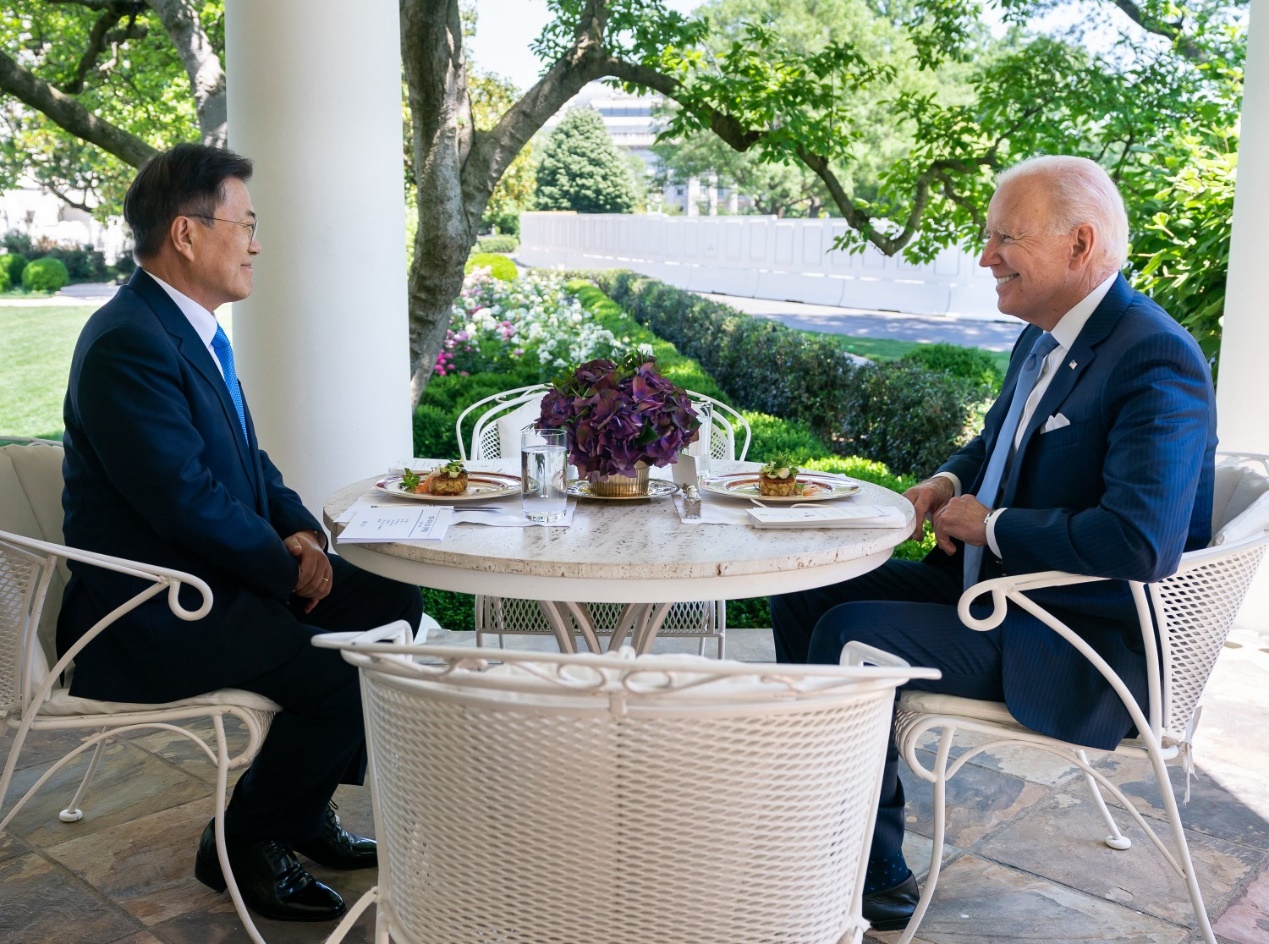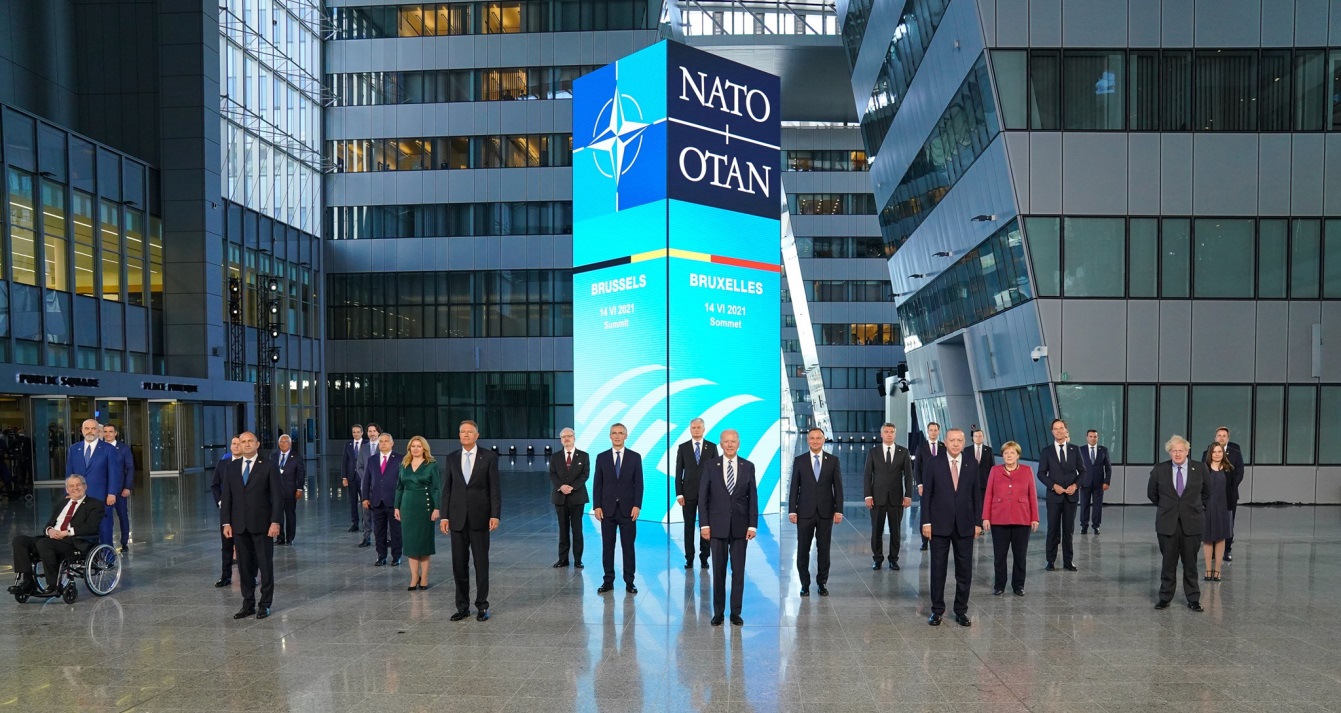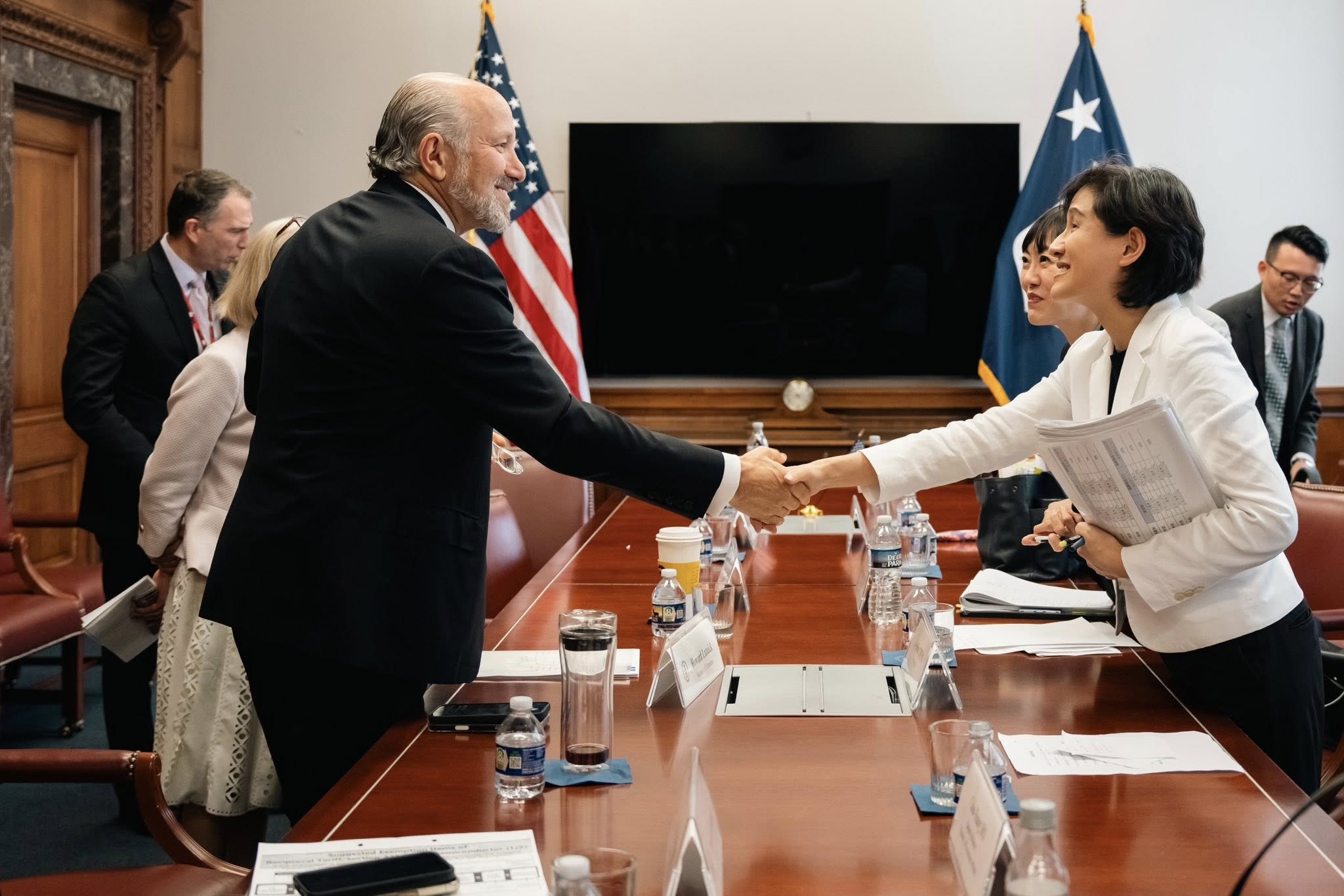Following the conclusion of an April 17 bilateral White House summit, US President Joe Biden and Japanese Prime Minister Yoshihide Suga issued a joint statement largely aimed at China. Picture Source: Suga Yoshihide, Facebook, https://www.facebook.com/photo/?fbid=3522407251197970&set=pcb.3522410107864351.
Prospects & Perspectives 2021 No. 28
US-Japan Summit’s Impact on Northeast Asia
Ming-juinn Li
Secretary General, Taiwanese Society of North-East Asia
US President Joe Biden and Japanese Prime Minister Yoshihide Suga held a joint news conference, following their April 17 White House summit, in which they underscored their commitments to the assurance of security for the East and South China seas, human rights in Hong Kong and the Xinjiang Uyghur Autonomous Region, while also addressing their concerns about China’s Coast Guard Law, and affirming the inclusion of the Senkaku Islands within the umbrella of the U.S.-Japan Treaty of Mutual Cooperation and Security. Strikingly, they also publicly stated “the importance of peace and stability of the Taiwan Strait,” an explicit statement expressly left unstated for the past in 52 years. All of these declarations struck a nerve with China which could impact international relations in the Northeast Asian region as a whole.
China’s increased military activities around Taiwan have drawn the concern of the US, prompting its secretary of state, Antony Blinken, to warn China in a recent interview against the use of military force to change the present situation in the Taiwan Strait. Admiral John Aquilino, head of the US Indo-Pacific Command (USINDOPACOM), told the Senate Armed Forces Committee that the threat of a Chinese invasion of Taiwan, in his opinion, is “much closer to us than most think”. Former Commander of USINDOPACOM Adm. Philip S. Davidson warned that China could attack Taiwan within the next six years. And Republican Senator Tom Cotton has said that Beijing might choose to invade Taiwan as early as next year following the Winter Olympics. The Economist has even gone so far as to issue a May 2021 cover nameing Taiwan as the most dangerous place on earth. These concerns clearly indicate America’s growing concerns over China's increasingly aggressive stance toward Taiwan.
In the event that China wages a successful military take-over of Taiwan, the global trading system will be directly impacted and US credibility amongst its Asian allies, especially Japan, South Korea, and the Philippines, with be irreparably harmed. Therefore, the United States begun a serious review of its strategic approach to China that covers Taiwan; and, if Biden is to take a tough line, then Japan will have to play a leading role. In this light, there is no choice for the U.S but to strengthen its alliance with Japan.
In recent years, Chinese-Japanese relations have gradually improved, but after Biden took office, the two countries participated in the Quad meeting with India and Australia, and then held a “two-plus-two” meeting in March this year where they discussed such issues as the Taiwan Strait, Hong Kong, Xinjiang, and Tibet. Now, coupled with a US-Japan summit that has focused on dealing with China, the attitude of the Chinese government has changed, growing increasingly dissatisfied with the situation and leading to a deteriorating situation for China-Japan relations.
At the same time, South Korea President Jai-in Moon’s late May visit to the US makes him the second foreign leader to meet face-to-face with Biden at the White House. The Biden administration has stated that U.S. policy toward North Korea has entered the final stages with hopes for closer cooperate closely with Japan and South Korea on regional security issues such as North Korea and China. Earlier in the year, US and South Korean officials resolved a major outstanding issue when they reached an agreement in principle on defense cost sharing with the signing of the 6-year Special Measures Agreement, replacing the prior agreement that had expired in late 2019. The agreement showed improvement in relations between South Korea and America and represents the Biden government’s “commitment to reinvigorating and modernizing our democratic alliances around the world to advance our shared security and prosperity.” The US-Korea summit demonstrates that the vigor of the alliance between the two countries, but also adds to the worsening of ChinaKorea relations worse which began under the THAAD issue.
Looking at this from a different perspective, when U.S.-China relations deteriorated under the Trump administration, China moderated its attitude towards Japan and India, which has also been their preferred course of action for the current situation. Therefore, although China has felt deep dissatisfaction with the US-Japan joint statement, the China foreign ministry has so far issued only generic statements through its spokesperson in mentioning the territorial issues of Taiwan and the Senkaku Islands, as well as the purely internal matters of Hong Kong and Xinjiang, but still stressing that the US-Japan joint statement interferes in its domestic affairs and violates basic norms of international relations. China, however, has not yet escalated to statements threatening sanctions or other retaliatory measures. At present China continues to be preoccupied with managing its dominant adversarial relationship that of US-China relations which seem on course for unavoidable conflicts, and, in light of such a situation, is unlikely to pursue actions that expand the number of its adversaries.
The Biden White House has been adding to the difficulties with its “democracies vs. autocracies” rhetoric and the reinforcement of the US-Japan-Korea alliance. Changes in the domestic and external situations of the United States and China, and uncertainty surrounding the future relationship between the two countries has had a direct impact on developments in Northeast Asia, and even the world. This situation, coupled with Northeast Asia being the world's current center of economic center, means Taiwan must begin to make appropriate advance preparations.
(The Chinese version of this article was presented on the website, Facebook, and Twitter of Prospect Foundation, May 19, 2021)


